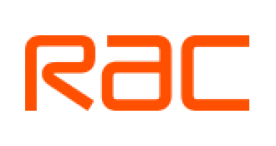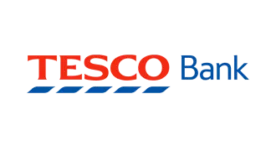Compare unsecured business loans
We help small businesses and sole traders find the right funding – fast.
- Tell us a bit about your business and how much you need.
- Instantly see loan options you’re eligible for.
- Go straight to the lender – no repeating forms or details.
Apply today and get matched with trusted lenders ready to support your growth.

Unsecured Business Loans
Best Unsecured Loans for Business
An unsecured business loan could provide the funds your venture needs without putting your business assets at risk. The important part is to find the right unsecured loan for you.
What is an unsecured business loan?
Unsecured business loans provide a way for businesses to access finance without having to put forward an asset as security for the loan. This means an unsecured business loan might work for you if your business has little in the way of assets or you don’t want to risk losing the ones it does have.
Unsecured loans for businesses can therefore take various forms, including start up business loans and small business loans, but are used by more established and larger businesses too.
How do unsecured business loans work?
With an unsecured business loan, the amount that is borrowed, plus interest, is repaid in instalments. These regular repayments will need to be made over a set period of time, which is agreed when the loan is taken out. Assuming all of the repayments are made on time and in full, the loan should be fully paid off by the end of the loan term.
The interest rate is also set when the loan is taken out – if it’s a fixed rate your repayments should remain the same throughout the term, while if it’s a variable rate your repayments could rise or fall, depending on whether the interest rate goes up or down.
Is a personal guarantee needed for an unsecured business loan?
Possibly. The absence of security makes it more likely that you’ll be asked to give a personal guarantee on an unsecured business loan. This is important as, by providing the guarantee, you effectively promise to cover the repayment of the loan from your own personal finances if the business can’t.
How to find unsecured business loans through NerdWallet UK
We’re here to match you with business loans that suit your needs. The lenders highlighted from our panel will also give you the best chance of being accepted. If your business needs funding fast, we can help, without affecting your credit score:
- Answer a few questions about you and your business, so we know what you need.
- Get matched instantly with suitable products from our panel of providers that you’re eligible for.
- Compare products and apply to your chosen lender, without having to repeat-fill forms.
» COMPARE: Find the right loan for your business today
Unsecured business loan pros and cons
Benefits of unsecured business loans
The main advantages of unsecured business loans include:
- Assets are not needed: This could appeal if your business has few or no assets, or you don’t want to risk those assets your business does have.
- Speed and simplicity: Unsecured loans are usually faster and easier to arrange because assets don’t need to be valued, and there’s less legal work involved.
- Less chance of losing assets: There is no direct or immediate risk of your business assets being taken by your lender if repayments aren’t met.
- Wide range of uses: The funds raised can be used to help your business in almost any way it needs.
Disadvantages of unsecured business loans
Some potential drawbacks of unsecured business loans can include:
- Higher interest rates: With no security for the loan, interest rates tend to be higher to compensate lenders for the risk they are taking on.
- Lower loan amounts: Available loan amounts are often smaller, reflecting the risk felt by lenders of not having an asset to fall back on if needed.
- Personal guarantees: If provided, your personal assets, including your savings, investments and home, could be used to cover the loan if your business can’t repay what is owed.
- Harder to qualify: Eligibility requirements may be stricter due to the absence of security, and could make it difficult to get an unsecured loan if your business has bad or poor credit.
What can unsecured business loans be used for?
Unsecured business loans can usually be used to cover almost any expense a business might incur. This could include:
- Buying stock, equipment or business premises
- Covering running costs, such as business insurance, or your premise’s rent and utility bills
- Hiring new employees or to pay current workers
- Advertising and marketing costs
- Helping cashflow, if you’re waiting for payments or your business is seasonal
- Covering unexpected bills and expenses
- Consolidating different debts
Can I get an unsecured business loan?
Unsecured business loans are available to various types of businesses in the UK, including sole traders, limited liability partnerships and limited companies.
While eligibility criteria can vary between unsecured business loan lenders, most require that as the business owner, you:
- are at least 18 years old
- are a UK resident
- want to set up, or already run, a UK-based business.
Beyond this, each lender tends to have its own minimum requirements in relation to how long a business has been operating and turnover. If you’re just starting out or have a young business, there are loans available that require no trading history.
Your business’ credit history can be important, while some lenders might also want a personal guarantee from you, as the business owner, particularly for larger loan amounts. In this case, you may need to have a good personal credit history too.
Some unsecured loans may also require that you have a business bank account for the loan funds to be paid into.
Other types of unsecured business borrowing
An unsecured business loan is one of several ways to raise funding for your business. Some alternative types of business loan and borrowing that are unsecured include and may be worth considering include:
Business credit cards
A business credit card can offer the twin benefit of providing access to credit while also helping boost your business’s credit history. Depending on the type of card, interest is usually payable if you don’t pay off the amount you borrow in full each month.
Business overdraft
Some business bank accounts offer access to a business overdraft – a short-term line of credit, which can be useful to cover unexpected costs and help with cash flow. Interest is usually payable on the amount you go into the overdraft.
Revolving credit facility
A revolving credit facility is essentially a hybrid of an overdraft and credit card, but instead of using a card, funds are transferred to your business account. Interest is payable on the amount borrowed.
Start up loans
As the name suggests, start up business loans are for newer businesses or ventures that are about to get going. Many start up loans are unsecured.
Merchant cash advances
With a merchant cash advance, funds are raised against the future sales of a business. Repayments are made by deducting a percentage of the debit and credit card payments your business receives for payment of goods and services.
Looking for a merchant cash advance or other funding options?
Get matched with the providers you’re eligible for and save time with pre-filled application forms.
Unsecured Business Loan FAQs
On the one hand, unsecured business loans can be harder to get, due to the increased risk they pose to lenders. Because there is no security for the loan, lenders don’t have the safety net of an asset to fall back on if payments aren’t made. In turn, this can lead to stricter eligibility and credit history requirements.
However, if your business has strong financials, a good business plan, no major credit issues, or you’re willing to offer a personal guarantee, unsecured loans can still be relatively easy to get. In particular, the application process should be simpler and quicker compared with a secured loan where the assets used as security must be valued and involve more legal work.
Some unsecured business loans don’t require a personal guarantee while others do. Requesting a larger loan might make lenders more likely to ask for a guarantee than with a smaller loan.
The information and documents you’ll need to provide tends to vary between lenders, but generally most will need to see:
- proof of your identity and address
- documents verifying your business
- business bank statements
- other financial statements, such as balance sheet, profit and loss, tax return
- a business plan, including forecasts, particularly for start up businesses
Interest rates on unsecured business loans generally range between 6% and 15% APR (Annual Percentage Rate), but may be higher or lower. The rate you’re offered is likely to depend on several factors, including the loan amount, type of loan, and your and your business’s financial circumstances and credit history.
It is possible to get an unsecured business loan if you or your business has bad credit, but it’s likely to prove more difficult, and the interest rates available are likely to be higher. It’s also more likely you’ll need to provide a personal guarantee.
» MORE: Bad credit business loans
When deciding whether you qualify for an unsecured business loan, a lender may want to look at your business’s:
- turnover
- profit
- accounts
- trading history
- payment history
- projections and business plan
- funds in the bank
- customer base
- credit history
It may be possible to borrow up to £500,000 or even more through an unsecured business loan, but much depends on the lender and your business. Exactly how much you’re allowed to borrow will ultimately depend on factors such as your business’s finances, credit history and forecasts. Your personal credit history may also be considered.
» MORE: Try our business loan calculator
Terms on unsecured business loans often range between one and 10 years, though some lenders may offer shorter or longer repayment options. Opting for a longer term can lower regular repayments, but also means you’re likely to pay more interest overall.
Some lenders may take a few days or weeks to evaluate an unsecured business loan application and release funds, while others may give approval and release monies in the space of one day. Providing all of the information a lender needs can help avoid unnecessary delays.
An unsecured business loan is normally paid back in regular instalments over the term agreed with the lender when taking the loan out. Repayments are typically made monthly, via direct debit, though some lenders offer loans with weekly or even daily repayments.
Making all of the repayments in full and on time should mean the loan and interest owed is completely paid off by the end of the loan term. It is usually possible to pay back an unsecured business loan early, but early repayment charges may apply, so check first.
Image source: Getty Images







